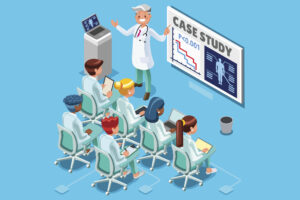| See which schools offer South Carolina LPN programs near you Browse our list of state approved LPN certification programs |
|
Nursing offers both practical benefits and personal rewards. You can earn excellent pay in this field. At the same time, you help people in need as your main job. As a result, the work is both emotionally and financially fulfilling. Right now, millions of baby boomers are retiring. Many of them can afford independent nursing care. As a result, in-home care jobs for LPNs are on the rise. In addition, many current nurses are over fifty and will soon retire. Hospitals will need to hire new nurses to fill these open positions.
South Carolina LPN Licensing RequirementsPractical nurses play a vital role in health care by providing essential services and handle many tasks that would otherwise consume a doctor’s time. Becoming a licensed practical nurse (LPN) requires just one year of education. In contrast, doctors must complete an eight-year degree program before they can practice. Because of this difference, nurses are more affordable to hire and more widely available than doctors. Hospitals could not function without them. Although most nurses cannot prescribe restricted medicines, they deliver daily care and administer over-the-counter medications as directed. Nurses also conduct initial patient interviews and measure height and weight before the doctor arrives. With these duties, practical nurses ensure smooth patient care and support the entire health care team. Prerequisites for South Carolina LPN ProgramsMany practical nursing programs require new students to be certified in CPR. This training covers rescue breathing and the use of a defibrillator. Often, the American Red Cross offers the most affordable way to earn this certification. Before you enroll, you must also complete an orientation. Additionally, you will need to pass both medical and criminal background checks. By meeting these requirements, you start your LPN journey prepared and ready for success. South Carolina LPN Training CurriculumLPN training programs cover a wide range of subjects. You will study human anatomy, physiology, and medical terminology. Early in your training, you will also practice basic math skills to accurately measure drug dosages. Many practical nurses later become medical transcriptionists. Their deep knowledge of medical terms and how they connect to practice makes this career move possible. As you progress, you will learn first aid and advanced patient treatment. Nearly all practical nursing programs include in-hospital training. Here, you will work with real medical equipment and actual patients. LPN Classes & Schools in South CarolinaWith each class and clinical session, you build confidence and gain hands-on experience. Nursing requires you to care for patients and deliver medicine with precision. In addition to technical skills and health knowledge, nurses must act with dignity and professionalism at all times. Patients want care from someone who takes their job seriously. Being a practical nurse means holding yourself to high standards. You must show accountability and professional integrity in every task. With these qualities, you earn trust and make a positive impact every day.
List of LPN Programs in South Carolina
|
Top Ranked South Carolina LPN SchoolsYou can use our directory to find all state-approved South Carolina LPN programs. The South Carolina State Board of Nursing reviews and approves all South Carolina LPN programs. Each school must demonstrate that its program provides students with the knowledge and skills necessary to become licensed practical nurses. However, approval does not last forever. The board checks each program regularly. Graduation rates and NCLEX pass rates are the most important factors in determining whether a program should retain its approval. If a program’s results drop in either area, the board acts quickly. The school may lose its approval or be placed on probation until the results improve. These safeguards help ensure that future nurses in South Carolina receive high-quality training. All South Carolina LPN programs are held to the same quality standards. Required LPN Classes in South CarolinaPractical nursing programs often require different courses at each school. Even so, most South Carolina LPN programs share several core subjects. For example, you will almost always study Anatomy and Physiology, Basic Nursing Skills, Nutrition, Math for Nurses, Psychology, and Pharmacology. These classes are included in nearly every curriculum and provide a strong foundation for your training. As you work through the program, each subject helps you build essential knowledge and practical skills. Because of this preparation, you will feel confident and ready to work as a licensed practical nurse. With these fundamentals, you can start your nursing career and make a positive impact on patients every day. Taking the NCLEX-PN Exam in South CarolinaBegin your journey by researching education programs that fit your schedule and needs. Next, enroll in an LPN training program approved by the South Carolina Board of Nursing. Most programs take about one year to complete. This concise timeline enables you to begin your career sooner. After you finish your coursework, you become eligible to take the NCLEX-PN exam. Passing this test is a key milestone on your path. Once you succeed, you can register as a licensed practical nurse in South Carolina. Finally, start your job search. Each step brings you closer to working as an LPN and making a meaningful difference in patients’ lives every day. |


